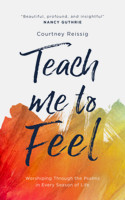
When I was 33 weeks pregnant with my fourth child, my placenta partially abrupted. If you aren’t familiar with obstetrics (as I was not), this is life-threatening for both the mom and the baby. It is rare, random, and completely terrifying. In a matter of hours, my entire life was turned upside down. If I had feelings, I didn’t know how to express them. My emotions often came out in a jumbled mix of anger, terror, grief, and occasional hope. I just wanted my baby to live. I just wanted me to live.
I used to think hospital bed rest would be like a mini-vacation. You would get to nap when you wanted. Your food was prepared for you every day. And you never had to clean. It was nothing like that. And still the feelings flooded me.
One moment I would feel hopeful. An evening of calm from all the monitors meant we just might be ok. I would feel peace—but it would slip through my fingers. By the next morning, they would be prepping me for an emergency delivery. Then things would stabilize, putting us back in the waiting game. More fear. More anxiety. More confusion. More questions. I couldn’t focus on anything of substance for more than a moment, because in a moment everything could change.
In the end, Ben was born. He was ok. But I was not.

Meditations on the Psalms that help you to express your feelings to God in a biblical way.
When we came home, the feelings only intensified. Sure, we were safe. A stranger on the street would have said we were one, big happy family. But if you go through trauma, you don’t get to just come home to the old normal. You have to find a new one. That was the hard task before us. What does normal look like when you now know that life can be snuffed out in an instant? I was grateful, but scared. Sobered, but relieved. I was joyful, yet weepy. I was a walking paradox.
Many of us Christian women—in times of crisis, but in normal life too—aren’t sure what to do with our feelings. We struggle to know how to feel “Christianly.”
So, often, we are prone to suppress our emotions, worried that we are being ungodly. It’s the idea that “Christians should feel like this...” and “Christians definitely should not feel like this...” So we don’t tell anyone how we feel, we hardly admit it to ourselves, and we certainly won’t take it to God. We have no idea what to do with fear, anger, envy, and so on... so we try to ignore them and hope they go away.
On the other hand, many of us are much more in tune with our feelings—and much better at expressing them. But then there is the opposite danger, of being so directed by our feelings that how we feel directs what we believe about God and ourselves. We are always up and down. If the wheels fall off, then our faith falls apart.
We need to learn how to feel Christianly. And, though I hardly realized it at the time, in that month in the hospital, I found my teacher. I found the psalms.
In the hospital, and in the many months after, the Psalms were my lifeline. Everything else felt meaningless. Everything else was too heavy and exhausting. The Psalms gave me words. The Psalms got me, in all my raw emotion over the possibility of losing my son and my own life. They got my joy and my pain. They got my praise and my tears. They understood me when I didn’t understand myself.
In the Psalms, I wasn’t only understood, but I also had language for my fears. In the Psalms, I had language for my distress. But in the Psalms, I also had language for God—I saw him for who he is, and I was able to trust him. The Psalms sustained me in my darkest moments. The Psalms became as necessary to my health as the hospital-prepared tray that was delivered to me three times a day. The Psalms taught me to feel the reality of life, in all its complexities, and they brought healing in the process.
In my book Teach Me To Feel I want us to walk together through our feelings, asking God, through the psalms, to teach us to feel—to see that we have permission to feel, to see that he gives us language for our feelings, and to understand how God shapes us in our feelings.